WebThe Hongwu Emperor realized that the Northern Yuan still posed a threat to the Ming dynasty, even though they had been driven away after the collapse of the Yuan dynasty. WebHongwu (Vastly Martial) was adopted as his reign title, and he is usually referred to as the Hongwu emperor, though Taizu is more strictly correct. Indeed, all of central and northern China was suffering from drought and famine, and more than seven million people starved, a situation that encouraged the popular rebellions that started from around 1325. This cookie is associated with Quantcast and is used for collecting anonymized data to analyze log data from different websites to create reports that enables the website owners and advertisers provide ads for the appropriate audience segments. The Hongwu Emperor, founder of the Ming Dynasty, came to power amid violence. Zhu now emerged as the national leader against the Mongols, though he had other rivals for power.
The purpose of the cookie is to check when the cookies were last updated on the browser in order to limit the number of calls to the server-side cookie store. This cookie is set by pubmatic.com.  The cookie is set to identify new vs returning users. Get a Britannica Premium subscription and gain access to exclusive content. https://thechinaproject.com/2020/07/28/the-fruits-of-legitimacy-a-gift-for-the-hongwu-emperor/. Actually, two melons, sort of: two melons grown from a single stem. This change had serious defects, the most important being the inability of even the most vigorous emperor to attend to all the affairs of state. We no longer have literal emperors in China, but the ties between ruler and ruled have never been more scrutinized.
The cookie is set to identify new vs returning users. Get a Britannica Premium subscription and gain access to exclusive content. https://thechinaproject.com/2020/07/28/the-fruits-of-legitimacy-a-gift-for-the-hongwu-emperor/. Actually, two melons, sort of: two melons grown from a single stem. This change had serious defects, the most important being the inability of even the most vigorous emperor to attend to all the affairs of state. We no longer have literal emperors in China, but the ties between ruler and ruled have never been more scrutinized. 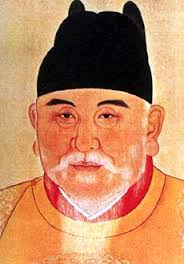 More significantly, he learned the principles of government and built up an effective administration in local areas alongside the military structure. He was one of just two men, ever, to rule as emperor of one of Chinas great dynasties after being born a peasant, and questions of legitimacy were never far from his mind. At the beginning of 1368 Zhu finally proclaimed himself emperor of the Ming dynasty, establishing his capital at Nanjing. This cookie is set by doubleclick.net.
More significantly, he learned the principles of government and built up an effective administration in local areas alongside the military structure. He was one of just two men, ever, to rule as emperor of one of Chinas great dynasties after being born a peasant, and questions of legitimacy were never far from his mind. At the beginning of 1368 Zhu finally proclaimed himself emperor of the Ming dynasty, establishing his capital at Nanjing. This cookie is set by doubleclick.net. 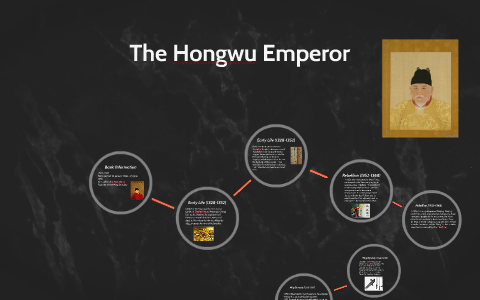 Zhu Yuanzhangs ascent happened in the 14th century when China was being ravaged by famine, plagues, and peasant revolts. In the same year Zhu proclaimed himself prince of Wu. Orphaned at 16, he became a monk at the Huangjue monastery near Fengyang to avoid starvationa common practice for the sons of poor peasants. Escorted by one of Zhus men during the trip, Han died by drowning when his boat capsizedan event perhaps contrived by Zhu. Proclaiming himself duke of Wu, Zhu established an effective administration over the Nanjing area with the help of the scholars and on their advice refrained from roaming aimlessly from place to place to plunder. Zhu joined the rebel forces and changed his name to Zhu Yuanzhang, rising from the ranks to become second-in-command.
Zhu Yuanzhangs ascent happened in the 14th century when China was being ravaged by famine, plagues, and peasant revolts. In the same year Zhu proclaimed himself prince of Wu. Orphaned at 16, he became a monk at the Huangjue monastery near Fengyang to avoid starvationa common practice for the sons of poor peasants. Escorted by one of Zhus men during the trip, Han died by drowning when his boat capsizedan event perhaps contrived by Zhu. Proclaiming himself duke of Wu, Zhu established an effective administration over the Nanjing area with the help of the scholars and on their advice refrained from roaming aimlessly from place to place to plunder. Zhu joined the rebel forces and changed his name to Zhu Yuanzhang, rising from the ranks to become second-in-command.
The Hongwu Emperor (also known by his posthumous temple name, Tiz ) came to power amid violence, and his reign was yet fragile. Conjoined melons were rare and wonderful. In 1370, the Hongwu Emperor ordered that some lands in Hunan and Anhui should be given to young farmers who had reached adulthood. This cookie is associated with Quantserve to track anonymously how a user interact with the website. . The Hongwu Emperor, the first emperor of the Ming Dynasty (1368 to 1644 CE) who reigned from 1368 to 1398 CE. Advertisement cookies help us provide our visitors with the most relevant ads and marketing campaigns. Now determined to overthrow the Yuan (Mongol) dynasty (12061368), Zhu marched toward Nanjing and captured it in 1356. These cookies do not store any personal information. Used to track the information of the embedded YouTube videos on a website. His reign was yet fragile in 1372 when he was gifted two conjoined melons as a symbol of Heaven's blessing. This cookie is installed by Google Analytics. The Hongwu emperors military system, the weiso (guard-post) system, was of earlier origin. Wuchang, Chens stronghold, was captured in 1364, followed by the capture of Hubei, Hunan (a large province west of Jiangxi), and Jiangxi provinces. In an attempt to overcome this difficulty, the emperor made use of six or more grand secretaries, who were responsible for routine administration. But much suffering would befall those around him. for the purpose of better understanding user preferences for targeted advertisments. Taizu wielded power, but ambition consumed him and his legacy was mixed. 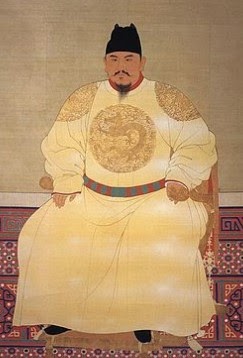
The new emperor had named his reign Hongwu Great Military Prowess to celebrate his martial achievements, and the conquest of the western regions was an essential part of his program. Melons had originated in the west: Gansu province, at the edge of the empire.  Omissions? Surely, the Emperor would correct the injustice, perhaps recalling the good omen Zhang Guan had given his nascent dynasty a few years earlier.
Omissions? Surely, the Emperor would correct the injustice, perhaps recalling the good omen Zhang Guan had given his nascent dynasty a few years earlier.
 This data is used to provide users with relevant ads. At that time he acknowledged the Song dynasty pretender, Han Liner, as his superior, even though Han was ineffectual. The ruler of the earths most powerful empire was being bothered to look at decorative fruit. After the Hongwu emperors death in June 1398, he was succeeded by his grandson Yunwen, known in history as Huidi, or the Jianwen emperor, who reigned until 1402, when the throne was usurped by the prince of Yan (the Yongle emperor). To optimize ad relevance by collecting visitor data from multiple websites such as what pages have been loaded. Why had Zhang decided to make a gift of his unusual fruit, and why to the emperor? This website uses cookies to improve your experience while you navigate through the website. The Hongwu Emperor, founder of the Ming Dynasty, came to power amid violence. Furthermore, the melons had grown in the village of Jurong, the emperors ancestral home (though not the poor village where he had been born). He considered certain groups (for instance, maternal relatives; court eunuchs, who were often entrusted with power; and the military) as having been peculiarly prone to intrigue in the past, and vigorously stamped out such tendencies.
This data is used to provide users with relevant ads. At that time he acknowledged the Song dynasty pretender, Han Liner, as his superior, even though Han was ineffectual. The ruler of the earths most powerful empire was being bothered to look at decorative fruit. After the Hongwu emperors death in June 1398, he was succeeded by his grandson Yunwen, known in history as Huidi, or the Jianwen emperor, who reigned until 1402, when the throne was usurped by the prince of Yan (the Yongle emperor). To optimize ad relevance by collecting visitor data from multiple websites such as what pages have been loaded. Why had Zhang decided to make a gift of his unusual fruit, and why to the emperor? This website uses cookies to improve your experience while you navigate through the website. The Hongwu Emperor, founder of the Ming Dynasty, came to power amid violence. Furthermore, the melons had grown in the village of Jurong, the emperors ancestral home (though not the poor village where he had been born). He considered certain groups (for instance, maternal relatives; court eunuchs, who were often entrusted with power; and the military) as having been peculiarly prone to intrigue in the past, and vigorously stamped out such tendencies.
The data includes the number of visits, average duration of the visit on the website, pages visited, etc. On the other hand, Chen Youting, a Yuan loyalist who protected Fujian province (on the southeast coast, opposite Taiwan), was captured and brought to Nanjing for execution. One of his political acts was to grant principalities to all his sons, ostensibly from fear of another Mongol invasion, so that the imperial princes could be given military powers to aid the regular armies. Students were subsidized and were privileged to apply for admission to the Hanlin Academy, which presumably formulated policy and supervised the local schools. The rest of the country fell easily as Ming troops subdued first the northwest, then the southwest (Sichuan and Yunnan). The three-day battle ended with Chens death and the destruction of his fleet. He established the Ming dynasty and became its first emperor. He returned home. A great problem for the Hongwu emperor was the succession. Moreover, he was persuaded by his scholars to present himself as a national leader against the Mongols rather than as a popular rebel.  This cookie is set by Youtube. The cookies store information anonymously and assigns a randomly generated number to identify unique visitors. The universe began with the heavenly tablet recording his name. Of lowly peasant origins, he always was aware of the popular misery that administrative corruption could engender, and he savagely punished malpractices.
This cookie is set by Youtube. The cookies store information anonymously and assigns a randomly generated number to identify unique visitors. The universe began with the heavenly tablet recording his name. Of lowly peasant origins, he always was aware of the popular misery that administrative corruption could engender, and he savagely punished malpractices. 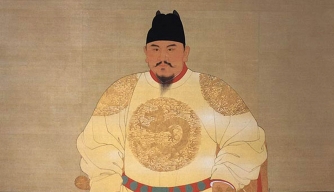 Please select which sections you would like to print: Alternate titles: Gaodi, Hung-wu, Taizu, Zhu Chongba, Zhu Yuanzhang, Emeritus Professor of History, California State University, Hayward.
Please select which sections you would like to print: Alternate titles: Gaodi, Hung-wu, Taizu, Zhu Chongba, Zhu Yuanzhang, Emeritus Professor of History, California State University, Hayward.
These problems were later mitigated when Zhu Yuanzhang married Guos adopted daughter, the princess Ma, who was influential in reconciling the two men. Was it Taizu, who rose to the ultimate power, or was it Zhang Guan, whom history came to regard as a model of virtue? But much suffering would befall those around him. Tying Taizus young dynasty to the mighty Tang, perhaps Chinas most powerful empire, was sure to win the minister points. Necessary cookies are absolutely essential for the website to function properly. Zhang Shicheng, the self-proclaimed prince Cheng of the Zhou dynasty, operated at Pingjiang (now Suzhou, in Jiangsu province adjoining the east coast and including Nanjing) in the east. In the same year Zhang Shicheng was captured and brought to Nanjing, where he committed suicide. As a result of this edict, more schools developed during the Ming than in previous periods of Chinese history, and education became inseparable from civil-service recruitment by examination, the realization of which had been an ideal during the Tang and Song dynasties. The practice of granting land to soldiers for cultivation in peace realized his ideal of having the troops support themselves so as not to burden the people. Before the two melons could be presented to the emperor, they had to be grown, of course. By August 1368, Ming troops had entered the Yuan capital of Dadu (later renamed Beijing). Meanwhile, the northern provinces were as restless as the south, and, when various rebels defied the Mongols, the capable Mongol minister Tuotuo personally led troops to subdue them.
-a-portrait-of-the-hongwu-emperor,-founder-of-ming-dynasty.jpg) In 1392, when the heir designate Yiwen died, the Hongwu emperor was persuaded to appoint Yiwens eldest son as his successor, rather than the prince of Yan, who was angered by this decision.
In 1392, when the heir designate Yiwen died, the Hongwu emperor was persuaded to appoint Yiwens eldest son as his successor, rather than the prince of Yan, who was angered by this decision.
14th century CE painted silk hanging. This Week in Chinas Historyis a weekly column. Out of these cookies, the cookies that are categorized as necessary are stored on your browser as they are essential for the working of basic functionalities of the website. Why don't you add some? 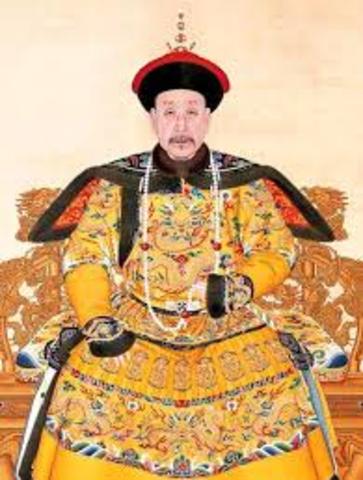
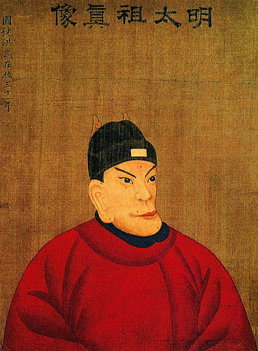 Download Full Size Image. Two fruits for the price of one suggested prosperity and plenty. This cookie is set by linkedIn. WebThe Hongwu emperor was less successful with Japan, the buccaneers of which ravaged the Chinese coast. Starting out as a penniless monk wandering China, he grew to be one of the most powerful warlords in Asia.
Download Full Size Image. Two fruits for the price of one suggested prosperity and plenty. This cookie is set by linkedIn. WebThe Hongwu emperor was less successful with Japan, the buccaneers of which ravaged the Chinese coast. Starting out as a penniless monk wandering China, he grew to be one of the most powerful warlords in Asia. 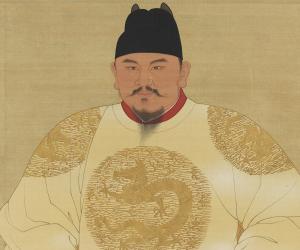 His name was Zhng Gun . 1360 Zhu Yuanzhang, future Ming Hongwu Emperor , defeats the rival rebel leader Chen Youliang at the battle of Poyang Lake. In his progress from a mendicant monastery to the imperial palace, the Hongwu emperor illustrates the chaos into which China had fallen under the preceding late Yuan dynasty. WebZhu Yuanzhang, leader of the rebel Red Turbans Movement and future Ming Hongwu Emperor, takes control of Nanjing. This cookie is set by Google and stored under the name dounleclick.com. Whats more, the symbolism of the melon, rather than some other crop, was significant. Taizu no doubt felt as though he had achieved Wealth and Power for his empire, two traditional goals of Chinese statecraft. Analytics cookies help us understand how our visitors interact with the website. You also have the option to opt-out of these cookies. Posterity viewed the emperors actions as such an egregious miscarriage of justice that Zhang Guan went down in history as an example of a virtuous man, his life held up in local histories as an example to future generations for his loyalty and sacrifice. Instead, Taizu had Zhang Guan arrested as well, and both brothers were beheaded. Performance cookies are key in allowing web site screens and content to load quickly on all types of devices. Shandong and Henan provinces submitted to Ming authority. He decided to reassess the orthodox Confucian view that the military class was
His name was Zhng Gun . 1360 Zhu Yuanzhang, future Ming Hongwu Emperor , defeats the rival rebel leader Chen Youliang at the battle of Poyang Lake. In his progress from a mendicant monastery to the imperial palace, the Hongwu emperor illustrates the chaos into which China had fallen under the preceding late Yuan dynasty. WebZhu Yuanzhang, leader of the rebel Red Turbans Movement and future Ming Hongwu Emperor, takes control of Nanjing. This cookie is set by Google and stored under the name dounleclick.com. Whats more, the symbolism of the melon, rather than some other crop, was significant. Taizu no doubt felt as though he had achieved Wealth and Power for his empire, two traditional goals of Chinese statecraft. Analytics cookies help us understand how our visitors interact with the website. You also have the option to opt-out of these cookies. Posterity viewed the emperors actions as such an egregious miscarriage of justice that Zhang Guan went down in history as an example of a virtuous man, his life held up in local histories as an example to future generations for his loyalty and sacrifice. Instead, Taizu had Zhang Guan arrested as well, and both brothers were beheaded. Performance cookies are key in allowing web site screens and content to load quickly on all types of devices. Shandong and Henan provinces submitted to Ming authority. He decided to reassess the orthodox Confucian view that the military class was
The troops sent to conquer the north were highly successful. The cookie is set by CloudFare service to store a unique ID to identify a returning users device which then is used for targeted advertising. The Mongol emperor Shundi fled to Inner Mongolia, and, although Mongol power was not immediately destroyed, historically the Yuan dynasty now came to an end. He used many tortures, especially flaying and slow slicing. The Ming was just four years old in 1372; for it to survive, Taizu needed to lay claim to the Mandate of Heaven, a vague, supernatural indicator of the right to rule. In 1367 the Song pretender Han Liner felt so threatened by the Mongols at his headquarters at Chuzhou that he decided to flee to Nanjing for protection. This category only includes cookies that ensures basic functionalities and security features of the website. Useful because evidence of the Mandate, aside from political or military success, was hard to come by; dangerous, because how to interpret these omens was far from self-evident. What heralded success to one observer might show another one impending doom. He is the author of three books on Chinas modern history, most recently Champions Day: The End of Old Shanghai.  Since we dont know why he presented the gift, we dont know if he was satisfied.
Since we dont know why he presented the gift, we dont know if he was satisfied.
Emperor and Subject is the subtitle of Schneewinds book. This cookie is set by pubmatic.com. Imperial authorities controlled the system of examination as far down as the provincial examinations that provided candidates for the metropolitan and palace examinations at the capital. In foreign relations the Hongwu emperor extended the Ming empires prestige to outlying regions: southern Manchuria was brought into the empire; outlying states, such as Korea, the Liuqiu (i.e., Ryukyu) Islands, Annam, and other states, sent tribute missions to acknowledge the suzerainty of the Ming emperor; and, not satisfied with the expulsion of the Mongols, he sent two military expeditions into Mongolia, reaching the Mongol capital of Karakorum itself.
Many Chinese emperors and empresses loved flaying their detractors, The Hongwu Emperor in particular he ordered the flaying of 5000 women in 1396.
The cookie is used to calculate visitor, session, campaign data and keep track of site usage for the site's analytics report.
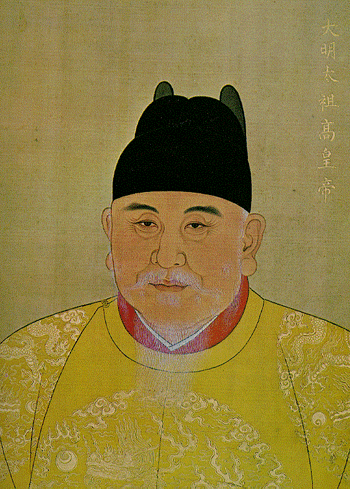 But the case was not quite done. Although superior in practice to the six ministries, the grand secretaries (later institutionalized as the grand secretariat) were mere servants of the despotic emperor. Whatever his motives, after presenting his gift to the court, Zhang Guan got a little money and an ode written by the emperor himself as a reward. The purpose of the cookie is to determine if the users' browser supports cookies. If neither of the cookies are set, the user is a new user. In 1363 a decisive naval battle at Lake Poyang (south of the Yangtze in the north of Jiangxi province) was fought between Chen Youliangs huge fleet of war junks and Zhus small but swift barges. Another adviser drew precedents from the past, quoting the Tang Dynasty statesman Hn Y , who described two fruits borne on a single stem as a particularly benevolent omen. Guo Zixing, a mere bandit leader, became jealous of Zhu Yuanzhang, who distinguished himself as a military leader.
But the case was not quite done. Although superior in practice to the six ministries, the grand secretaries (later institutionalized as the grand secretariat) were mere servants of the despotic emperor. Whatever his motives, after presenting his gift to the court, Zhang Guan got a little money and an ode written by the emperor himself as a reward. The purpose of the cookie is to determine if the users' browser supports cookies. If neither of the cookies are set, the user is a new user. In 1363 a decisive naval battle at Lake Poyang (south of the Yangtze in the north of Jiangxi province) was fought between Chen Youliangs huge fleet of war junks and Zhus small but swift barges. Another adviser drew precedents from the past, quoting the Tang Dynasty statesman Hn Y , who described two fruits borne on a single stem as a particularly benevolent omen. Guo Zixing, a mere bandit leader, became jealous of Zhu Yuanzhang, who distinguished himself as a military leader.
Hongwu, Wade-Giles romanization Hung-wu, posthumous name (shi) Gaodi, temple name (miaohao) Taizu, original personal name (xingming) Zhu Chongba, later Zhu Yuanzhang, (born Oct. 21, 1328, Haozhou [now Fengyang, Anhui province], Chinadied June 24, 1398, Nanjing), reign name (nianhao) of the Chinese emperor (reigned 136898) who founded the Ming dynasty that ruled China for nearly 300 years. Hongwu (Vastly Martial) was adopted as his reign title, and he is usually referred to as the Hongwu emperor, though Taizu is more strictly correct. Removed from this case by more than six centuries, we still see the trappings of power and the struggles to adapt, by both ruler and ruled. He did not. The Song emperors, learning from the Tang dynastys experience, had felt that the militarists were the most dangerous group in the country and had purposely encouraged the scholar class, but the Hongwu emperor felt that, after the Mongol expulsion, the scholars formed the most dangerous group. Three missions went to Japan, armed with inducements and threats, but were unable to curb piracy, because the Japanese authorities were themselves helpless. In Chinese history flaying became popular in 1396 when the Hongwu Emperor ordered 5000 women to be flayed. You can continue reading without saving your preference, or you can subscribe now. The cookie is used to in conjunction with the _omappvp cookies. [5] [6] In 1396 he ordered the flaying of 5000 women. The Zhang family was one of the most powerful and important in Jurong County, much more prominent than the local Zhu clan that now counted the new emperor among its members. Ming forces even penetrated Central Asia, taking Hami (in the Gobi) and accepting the submission of several states in the Chinese Turkistan region. But there were other viewpoints. A shocking turn of events, especially after the auspicious melons. Lu Xun said the Ming dynasty was begun and ended by flaying.  In 1380 the prime minister Hu Weiyong was implicated in a widespread plot to overthrow the throne and was executed along with 30,000 members of his clique. What could be more obvious: abundance growing in the fields of the emperors ancestors? From them he learned the rudiments of the Chinese language and studied Chinese history and the Confucian Classics. Nevertheless, his interest in restoring traditional Chinese values involved rehabilitating the Confucian scholar class, and from experience he knew that effective government depended upon the scholars.
In 1380 the prime minister Hu Weiyong was implicated in a widespread plot to overthrow the throne and was executed along with 30,000 members of his clique. What could be more obvious: abundance growing in the fields of the emperors ancestors? From them he learned the rudiments of the Chinese language and studied Chinese history and the Confucian Classics. Nevertheless, his interest in restoring traditional Chinese values involved rehabilitating the Confucian scholar class, and from experience he knew that effective government depended upon the scholars. 
 One such rebel was Guo Zixing, who in 1352 led a large force to attack and take Haozhou. During his reign, the Hongwu emperor instituted military, administrative, and educational reforms that centred power in the emperor. In 1353 Zhu Yuanzhang captured Chuzhou (now in Anhui province, northwest of Nanjing). The tale of two melons mattered not because it was a natural oddity, but because of what it tells us about power and legitimacy in China during the Ming Dynasty (and maybe today, too). This feature is for paid subscribers only. Three missions went to Japan, armed with inducements and threats, but were unable to curb piracy, because the Japanese authorities were themselves helpless. Read more. WebFlaying was meted out by ancient Assyrians to rebel leaders. The Tiananmen protests officially called a revolutionary movement, An imperial railway failure: Frances disastrous colonization project on the China-Vietnam border, Canton Coup and what could have been for the KMT, Sanmen Bay Affair: The only European power shut out of Qing China, The sad reign of Manchukuos only emperor, China Shakes the World answered critical questions during an uncertain time, The hidden benefits of learning Chinese: Q-and-A with psycholinguist Sara Maria Hasbun, How Twitter became a porn platform for gay men in China, When does cruelty become brutality? Not sliced or prepared to eat, but sitting on a lacquer tray. This cookie is used to stores information about how the user uses the website such as what pages have been loaded and any other advertisement before visiting the website. It helps us understand the number of visitors, where the visitors are coming from, and the pages they navigate.
One such rebel was Guo Zixing, who in 1352 led a large force to attack and take Haozhou. During his reign, the Hongwu emperor instituted military, administrative, and educational reforms that centred power in the emperor. In 1353 Zhu Yuanzhang captured Chuzhou (now in Anhui province, northwest of Nanjing). The tale of two melons mattered not because it was a natural oddity, but because of what it tells us about power and legitimacy in China during the Ming Dynasty (and maybe today, too). This feature is for paid subscribers only. Three missions went to Japan, armed with inducements and threats, but were unable to curb piracy, because the Japanese authorities were themselves helpless. Read more. WebFlaying was meted out by ancient Assyrians to rebel leaders. The Tiananmen protests officially called a revolutionary movement, An imperial railway failure: Frances disastrous colonization project on the China-Vietnam border, Canton Coup and what could have been for the KMT, Sanmen Bay Affair: The only European power shut out of Qing China, The sad reign of Manchukuos only emperor, China Shakes the World answered critical questions during an uncertain time, The hidden benefits of learning Chinese: Q-and-A with psycholinguist Sara Maria Hasbun, How Twitter became a porn platform for gay men in China, When does cruelty become brutality? Not sliced or prepared to eat, but sitting on a lacquer tray. This cookie is used to stores information about how the user uses the website such as what pages have been loaded and any other advertisement before visiting the website. It helps us understand the number of visitors, where the visitors are coming from, and the pages they navigate.  The cookie is used in conjunction with _omappvs cookie to determine whether a user is new or returning. The cookie also tracks the behavior of the user across the web on sites that have Facebook pixel or Facebook social plugin.
The cookie is used in conjunction with _omappvs cookie to determine whether a user is new or returning. The cookie also tracks the behavior of the user across the web on sites that have Facebook pixel or Facebook social plugin. 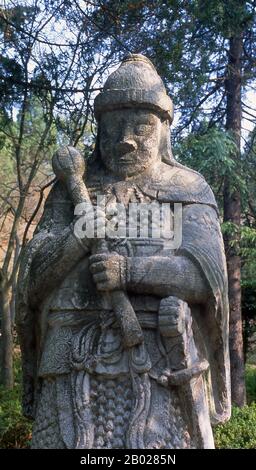 The cookie is set by Facebook to show relevant advertisments to the users and measure and improve the advertisements. The cookies collect this data and report it anonymously. His first choice, made when he was prince of Wu, was Biao, his eldest son, later known as the heir designate Yiwen. In the early 15th century the Hongwu Emperors son, the Yongle Emperor, supervised the transfer of the imperial capital from Nanjing to a new city in Beijing, 550 miles to the northwest.
The cookie is set by Facebook to show relevant advertisments to the users and measure and improve the advertisements. The cookies collect this data and report it anonymously. His first choice, made when he was prince of Wu, was Biao, his eldest son, later known as the heir designate Yiwen. In the early 15th century the Hongwu Emperors son, the Yongle Emperor, supervised the transfer of the imperial capital from Nanjing to a new city in Beijing, 550 miles to the northwest.
2023 TheChinaProject.com. A contributing factor was his interest in maintaining personal control over the empire through his sons principalities. This cookies is installed by Google Universal Analytics to throttle the request rate to limit the colllection of data on high traffic sites. The Zhengde Emperor flayed six rebels, and Zhang Xianzhong also flayed many people.
It may have been genuine admiration for the new ruler, or perhaps flattery with some reward in mind? WebHongwu Reign, 2nd Year 2nd Month: The Yuan-dynasty work Veritable Records of the Thirteen Reigns ( Shisan chao shilu) is obtained and a literary team led by Left Grand Councilor Li Shanchang and Song Lian (the former archivist) compile History 
 Other rebels decided to submit or were eliminated. The order was intended to prevent landlords from seizing the land, as it also decreed that the titles to
Other rebels decided to submit or were eliminated. The order was intended to prevent landlords from seizing the land, as it also decreed that the titles to 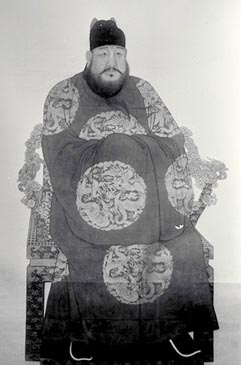 The Hongwu emperor was less successful with Japan, the buccaneers of which ravaged the Chinese coast. WebThe Hongwu Emperor (Chinese: ; WadeGiles: Hung-wu Ti; 21 October 1328 24 June 1398), known variably by his given name Zhu Yuanzhang (Chinese: Hongwu was infamous for killing many people and his purges. Their administration was faltering by the Hongwu emperors time, and his achievement, first as rebel leader and then as emperor, was to focus national resentment against the foreign rulers and to resuscitate a more truly Chinese way of government. These cookies also allow for the viewing of embedded content, such as videos. Instead of eliminating Mongol influence, he made his court resemble the Mongol court, and the despotic power of the emperor was institutionalized for the rest of the dynasty. All Rights Reserved. He also encouraged agriculture by granting unused land to the landless peasants, but, in spite of his successes, he was still reluctant to proclaim himself king (wang). Will his legacy stand up better than Taizus has? This cookie is installed by Google Analytics. The emperor consequently abolished the prime ministership in perpetuity as well as the central chancellery. His choice of advisers and his shrewd ability to adopt sound governmental measures ultimately made him the most formidable leader against the Mongols. He decided to reassess the orthodox Confucian view that the military class was inferior to that of the scholar bureaucracy. The purpose of the cookie is to enable LinkedIn functionalities on the page. This cookie is set by twitter.com. After establishing his dynasty, he adopted the name ming, the mandarin word for brilliant. WebOn Wikipedia, there is a snippet that reads: The Hongwu Emperor flayed many servants, officials and rebels. The future Hongwu emperor was born in 1328 as Zhu Chongba, a poor peasant of Haozhou (about 100 miles [160 km] northwest of Nanjing, near Chinas east coast). The Hongwu Emperor (21 October 1328 24 June 1398) Zhu Yuanzhang (Traditional Chinese: ; Wade-Giles: Chu Yuan-chang), was the founding emperor of the Ming dynasty, reigning from 1368 to 1398.
The Hongwu emperor was less successful with Japan, the buccaneers of which ravaged the Chinese coast. WebThe Hongwu Emperor (Chinese: ; WadeGiles: Hung-wu Ti; 21 October 1328 24 June 1398), known variably by his given name Zhu Yuanzhang (Chinese: Hongwu was infamous for killing many people and his purges. Their administration was faltering by the Hongwu emperors time, and his achievement, first as rebel leader and then as emperor, was to focus national resentment against the foreign rulers and to resuscitate a more truly Chinese way of government. These cookies also allow for the viewing of embedded content, such as videos. Instead of eliminating Mongol influence, he made his court resemble the Mongol court, and the despotic power of the emperor was institutionalized for the rest of the dynasty. All Rights Reserved. He also encouraged agriculture by granting unused land to the landless peasants, but, in spite of his successes, he was still reluctant to proclaim himself king (wang). Will his legacy stand up better than Taizus has? This cookie is installed by Google Analytics. The emperor consequently abolished the prime ministership in perpetuity as well as the central chancellery. His choice of advisers and his shrewd ability to adopt sound governmental measures ultimately made him the most formidable leader against the Mongols. He decided to reassess the orthodox Confucian view that the military class was inferior to that of the scholar bureaucracy. The purpose of the cookie is to enable LinkedIn functionalities on the page. This cookie is set by twitter.com. After establishing his dynasty, he adopted the name ming, the mandarin word for brilliant. WebOn Wikipedia, there is a snippet that reads: The Hongwu Emperor flayed many servants, officials and rebels. The future Hongwu emperor was born in 1328 as Zhu Chongba, a poor peasant of Haozhou (about 100 miles [160 km] northwest of Nanjing, near Chinas east coast). The Hongwu Emperor (21 October 1328 24 June 1398) Zhu Yuanzhang (Traditional Chinese: ; Wade-Giles: Chu Yuan-chang), was the founding emperor of the Ming dynasty, reigning from 1368 to 1398.
This cookie is used to track how many times users see a particular advert which helps in measuring the success of the campaign and calculate the revenue generated by the campaign. This time, it was to protest the wrongful arrest of his younger brother. Updates?  Its likely that Xi Jinping feels this too. WebThe Hongwu Emperor (Chinese: ; Wade-Giles: Hung-wu Ti; October 21, 1328 - June 24, 1398), known variably by his given name Zhu Yuanzhang (Chinese: ; Wade-Giles: Chu Yuan-chang) and by his temple name Taizu of Ming (Chinese: ; literally "Great Ancestor of Ming"), was the founder and first emperor (1368-98) of the Ming Dynasty of The skins were either stuffed with straw or nailed to a wall to show off to any potential enemies of the state. Therefore, in a characteristic display of paranoia and brutality, he ordered the flaying of more than 5,000 palace servant girls and those eunuchs who were supposed to watch the gates. The troops sent to conquer the north were highly successful. All this shows the perspective of court.
Its likely that Xi Jinping feels this too. WebThe Hongwu Emperor (Chinese: ; Wade-Giles: Hung-wu Ti; October 21, 1328 - June 24, 1398), known variably by his given name Zhu Yuanzhang (Chinese: ; Wade-Giles: Chu Yuan-chang) and by his temple name Taizu of Ming (Chinese: ; literally "Great Ancestor of Ming"), was the founder and first emperor (1368-98) of the Ming Dynasty of The skins were either stuffed with straw or nailed to a wall to show off to any potential enemies of the state. Therefore, in a characteristic display of paranoia and brutality, he ordered the flaying of more than 5,000 palace servant girls and those eunuchs who were supposed to watch the gates. The troops sent to conquer the north were highly successful. All this shows the perspective of court.